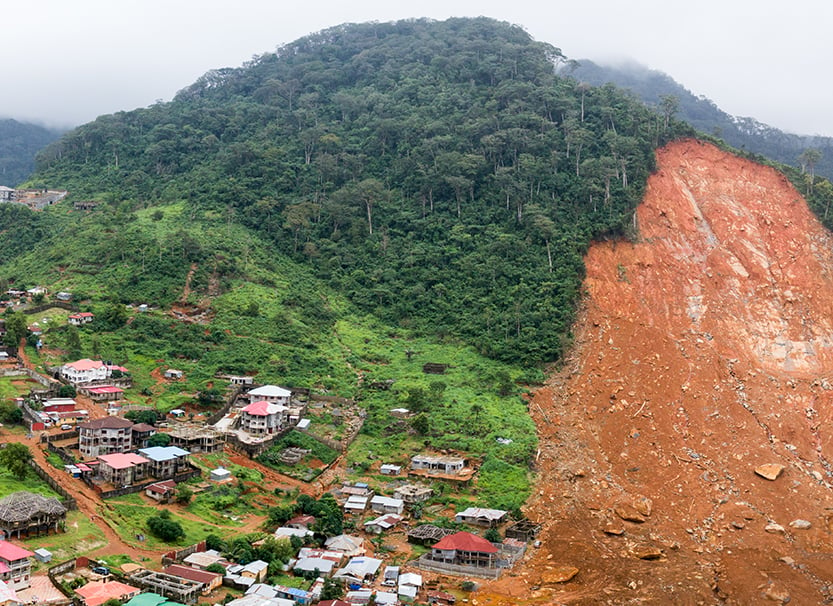The Enforcement Angle: David Uhlmann and OECA
Join Sidley for the Environmental Law Institute’s People Places Planet Podcast series, “The Enforcement Angle.” Through this series, Sidley partners discuss state and federal enforcement of environmental laws and regulations with senior enforcement officials and thought leaders on environmental enforcement in the United States and globally. The featured guests offer their insights into the challenging environmental issues facing corporations today. (more…)

Companies With Environmental-Related Concerns Should Pay Attention to DOJ’s Voluntary Self-Disclosure Policy
On February 22, 2023, the U.S. Department of Justice (DOJ) announced the formalization of its voluntary self-disclosure policy for corporate criminal enforcement (VSD Policy) for all U.S. Attorney’s Offices (USAO). The VSD Policy details the circumstances under which a disclosure will qualify as a voluntary self-disclosure under the policy and, in turn, provides incentives to companies to make eligible self-disclosures. One such incentive — provided that the company makes an eligible self-disclosure, fully cooperates, and timely and appropriately remediates the criminal conduct — is that the USAO will not seek a guilty plea unless there are aggravating factors present. This is the first time DOJ has issued nationwide standards for voluntary self-disclosures for corporate criminal enforcement.
2022 Sidley Energy Enforcement Update
This Sidley Energy Enforcement update covers:
- Federal Energy Regulatory Commission (FERC) approves settlement between Enforcement staff and Coaltrain
- Both FERC and Commodity Futures Trading Commission (CFTC) enforcement reports highlight the respective agency’s continued commitment to strong enforcement
- U.S. Court of Appeals for the Fifth Circuit upholds FERC’s finding that BP manipulated the natural gas market but remands to FERC to recalculate its $20 million penalty
- CFTC orders Glencore to pay a record-setting penalty of $1.186 billion
- CFTC and Securities and Exchange Commission (SEC) orders over $1.8 billion in fines against 11 firms for recordkeeping failure — employees using unapproved method of communications such as texts and WhatsApp on personal devices
Quarterly Review: Biden Administration’s Advancement of Environmental Justice
In the second quarter of 2022, the Biden administration took steps to implement the President’s whole-of-government environmental justice (EJ) strategy. Specifically, the U.S. Department of Justice (DOJ or the Department), U.S. Environmental Protection Agency (EPA or the Agency), and U.S. Department of Health & Human Services (DHHS) each announced initiatives to address EJ in a variety of agency functions. Additionally, the White House provided an update on funding available to disadvantaged communities. (more…)
Head of DOJ Environmental Division Announces Enforcement Priorities
Todd Kim, Assistant Attorney General at the U.S. Department of Justice (DOJ) Environment and Natural Resources Division (ENRD), delivered remarks at the American Bar Association’s National Environmental Enforcement Conference on December 14, 2021. He provided insight into what DOJ plans to prioritize in environmental enforcement, centered on criminal enforcement, climate change, and environmental justice.
Kim emphasized that the purpose of enforcement is to ensure that businesses are properly incentivized to comply with the law through deterrence and to provide a level playing field, while protecting public health and the environment. He noted that DOJ has prioritized fighting corporate crime and is revising applicable polices, so ENRD will consider pursuing potential environmental and non-environmental crimes, as well as a business’s environmental and non-environmental track record in prosecution decisions.
Kim focused on methods of sector-wide enforcement, citing the Petroleum Refinery Initiative that involved settlements covering 112 refineries in 37 states since 2000. Kim also expressed an interest in more penetrating identification of all involved parties within a business, as well as in the full supply chain, where relevant. This focus could be especially impactful for importers of chemicals, pesticides, or wood products.
With these various tools in mind, Kim cited climate change and environmental justice as the two highest priority issues. For climate change, he indicated greater enforcement for air emissions from petrochemical plants and from facilities with refrigeration systems. For environmental justice, he provided a general assurance that ENRD is paying greater attention to potential violations in communities of color and low-income communities that may be disproportionately burdened by environmental hazards and harms.
DOJ Launches First Environmental Justice Investigation Under Title VI of the Civil Rights Act
On November 9, 2021, the U.S. Department of Justice (DOJ) announced its first environmental justice investigation under Title VI of the Civil Rights Act of 1964, which prohibits recipients of federal financial assistance from discrimination on the basis of race, color, or national origin. DOJ announced that the investigation initiated by DOJ’s Civil Rights Division’s Federal Coordination and Compliance Section, with the support of the U.S. Attorney’s Office for the Middle District of Alabama, will focus on two issues. (more…)

